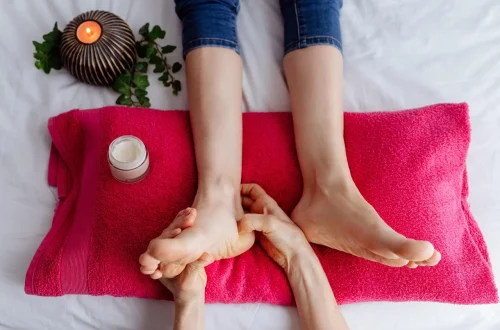
Finding Reputable Standard Schnauzer Breeders for Your New Companion
Finding the right companion can be one of the most rewarding experiences in life. For many, a dog is not just a pet but a loyal friend and family member who brings joy and comfort. Among various breeds, the Standard Schnauzer stands out for its intelligence, playful nature, and unique appearance. With a rich history as a versatile working dog, the Standard Schnauzer is known for its spirited personality and protective instincts. However, bringing a new Schnauzer into your home requires careful consideration, particularly when it comes to selecting a reputable breeder.
Choosing a responsible breeder is crucial for ensuring that your new companion is healthy, well-socialized, and a good fit for your family. The process of finding the right breeder may seem daunting, especially with the abundance of options available. It’s essential to know what to look for and what questions to ask. A responsible breeder prioritizes the welfare of their dogs, adheres to breed standards, and provides ongoing support to new puppy owners. Your journey to finding the perfect Standard Schnauzer begins with understanding the significance of selecting a reputable source.
Understanding the Importance of Responsible Breeding
When it comes to dog breeding, not all breeders are created equal. Responsible breeders take great care to maintain the integrity of the breed and prioritize the health and well-being of their dogs. This means they follow ethical practices, conduct health screenings, and strive to produce puppies that reflect the breed’s characteristics.
One of the main reasons to choose a responsible breeder is the health of the puppies. Reputable breeders conduct genetic testing and health screenings on their breeding stock to minimize the risk of hereditary diseases. Standard Schnauzers, like all breeds, can be prone to specific health issues, including hip dysplasia and certain skin conditions. By selecting a breeder who prioritizes health testing, you can significantly reduce the likelihood of encountering these problems in your new pet.
Moreover, responsible breeders are dedicated to the socialization of their puppies. Early exposure to various environments, sounds, and experiences is crucial for a dog’s development. Breeders who understand the importance of socialization will ensure that their puppies are well-adjusted and ready to thrive in a family setting. This foundation can help prevent behavioral issues in the future, making your experience as a dog owner more enjoyable.
Another critical aspect to consider is the breeder’s commitment to the breed. Responsible breeders are often involved in breed clubs and participate in dog shows or competitions. This involvement not only showcases their dedication to the breed but also keeps them informed about the latest breed standards and best practices. When you choose a breeder who is passionate about the Standard Schnauzer, you can trust that they are invested in producing high-quality puppies that adhere to the breed’s standards.
Lastly, reputable breeders usually provide ongoing support to puppy buyers. They are often available to answer questions and offer guidance as you navigate the early stages of dog ownership. This support can be invaluable, especially for first-time dog owners who may have concerns or need advice on training and care.
Researching Local Standard Schnauzer Breeders
Once you understand the importance of responsible breeding, the next step is to begin your search for local Standard Schnauzer breeders. A thorough research process can help you identify reputable breeders in your area.
Start by reaching out to local breed clubs or organizations dedicated to Schnauzers. These groups often have directories of breeders who adhere to ethical breeding practices and can provide recommendations based on your location. Networking with other Schnauzer owners can also yield valuable insights and referrals to trusted breeders.
Online resources can be a helpful tool in your search. Websites dedicated to dog breeds and breeders often feature reviews and ratings from puppy buyers. However, it’s essential to approach online information with a critical eye. Not all reviews may be genuine, and personal experiences can vary widely. Look for patterns in feedback and consider the overall reputation of the breeder based on multiple sources.
When you have a list of potential breeders, take the time to visit their facilities if possible. A responsible breeder will welcome you to their home and allow you to meet the puppies and their parents. This visit is an opportunity to observe the living conditions and assess the overall health and temperament of the dogs. Pay attention to how the puppies interact with their environment and with people.
During your visit, ask questions about the breeding practices, health screening, and socialization efforts. A reputable breeder will be transparent and willing to share information about their breeding philosophy, the care they provide, and any potential health issues within the breed. Don’t hesitate to ask for references from previous puppy buyers, as this can give you further insight into the breeder’s reputation and the experiences of others.
Additionally, be wary of breeders who have multiple litters available at once or who do not ask you questions about your lifestyle or experience with dogs. Responsible breeders want to ensure that their puppies are placed in suitable homes and will be genuinely interested in finding the right match for both you and the puppy.
Evaluating Puppy Health and Socialization
When you find a breeder and visit their facility, evaluating the health and socialization of the puppies is crucial. This stage will help you make an informed decision about which puppy is the best fit for your family.
Health is a priority when selecting a puppy. Ask the breeder about the health screenings performed on the parents and any health guarantees they provide for the puppies. A responsible breeder should have documentation available, including records of vaccinations and veterinary check-ups. Puppies should be examined by a veterinarian before going to their new homes, ensuring they are healthy and free from any infectious diseases.
Observe the puppies for signs of good health. They should be active, curious, and show interest in their surroundings. Look for clear eyes, a shiny coat, and a healthy weight. Any signs of lethargy, coughing, or discharge from the eyes or nose should raise concerns.
Socialization is equally important in a puppy’s early development. Puppies that have been well-socialized are typically more confident and adaptable in new situations. Ask the breeder about their socialization practices. Puppies should have been exposed to various sounds, environments, and experiences, such as meeting different people and other pets.
During your visit, interact with the puppies to gauge their temperament. Observe how they respond to you and to each other. A well-socialized puppy should be friendly, playful, and curious. While some puppies may be more reserved than others, extreme shyness or aggression can indicate a lack of socialization or potential behavioral issues.
Additionally, consider the breeder’s environment. A clean, safe, and stimulating space can significantly impact a puppy’s development. Look for puppies that have space to play, explore, and interact with their littermates. This environment is essential for their social and emotional growth.
Building a Relationship with Your Breeder
Establishing a good relationship with your chosen breeder is vital for the long-term success of your new puppy’s integration into your home. A responsible breeder is not just a source of a pet but a partner in your journey as a dog owner.
Communication is key. A good breeder will be open to questions and concerns before and after you bring your puppy home. They should provide you with guidance on feeding, training, and general care, ensuring that you are well-prepared for the responsibilities of dog ownership.
Additionally, inquire about any resources the breeder may offer, such as training recommendations or connections to local obedience classes. Many breeders are passionate about the breed and want to ensure that their puppies are well-trained and well-cared for throughout their lives.
Another aspect of a strong relationship with your breeder involves understanding their policies regarding returns or rehoming. Responsible breeders will often have contracts that outline what to do if circumstances change and you can no longer care for your dog. Knowing that you have support from your breeder in such situations can provide peace of mind.
Finally, consider maintaining contact with your breeder after bringing your puppy home. Sharing updates and photos can create a lasting bond and allows the breeder to see how their puppies are thriving in their new homes. This connection can also provide you with additional support and resources as you navigate the joys and challenges of dog ownership.
In conclusion, finding a reputable Standard Schnauzer breeder requires careful consideration and thorough research. By understanding the importance of responsible breeding, evaluating potential breeders, and establishing a relationship with your chosen source, you can ensure that you are welcoming a healthy, well-adjusted puppy into your home. This journey may take time, but the reward of finding the perfect companion is well worth the effort.
**Disclaimer: This article is for informational purposes only and should not be considered veterinary advice. For any health-related concerns regarding your pet, please consult a qualified veterinarian.**




